Fieldwork in Namibia - a natural scientist doing social science
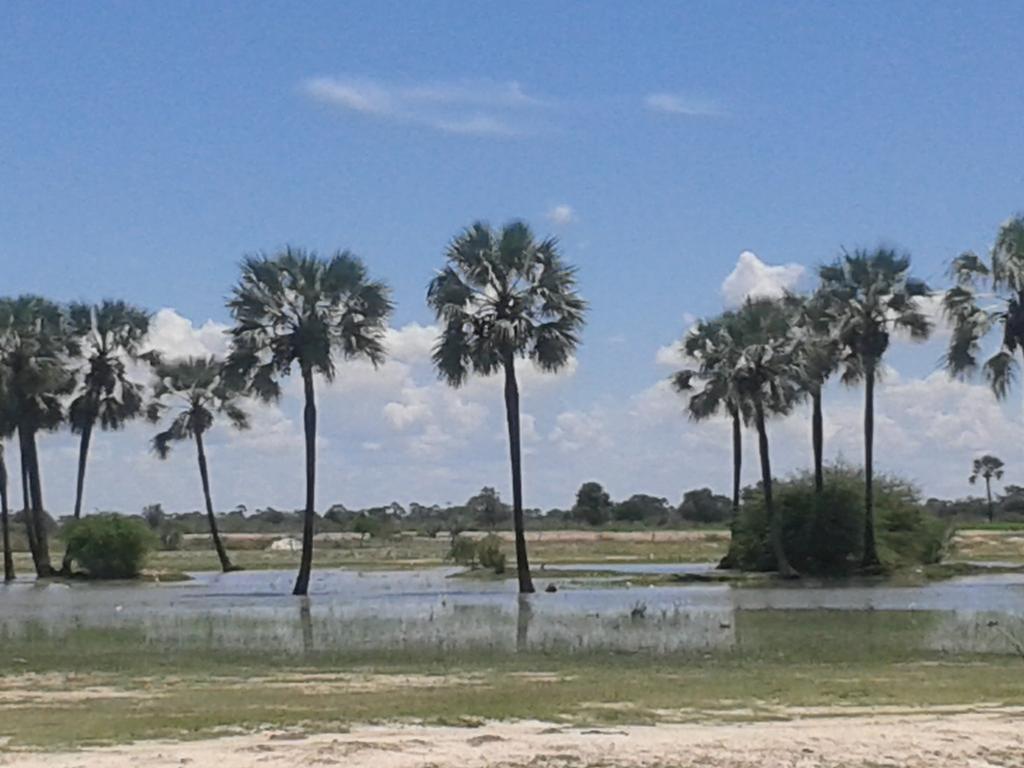
By Dian Spear
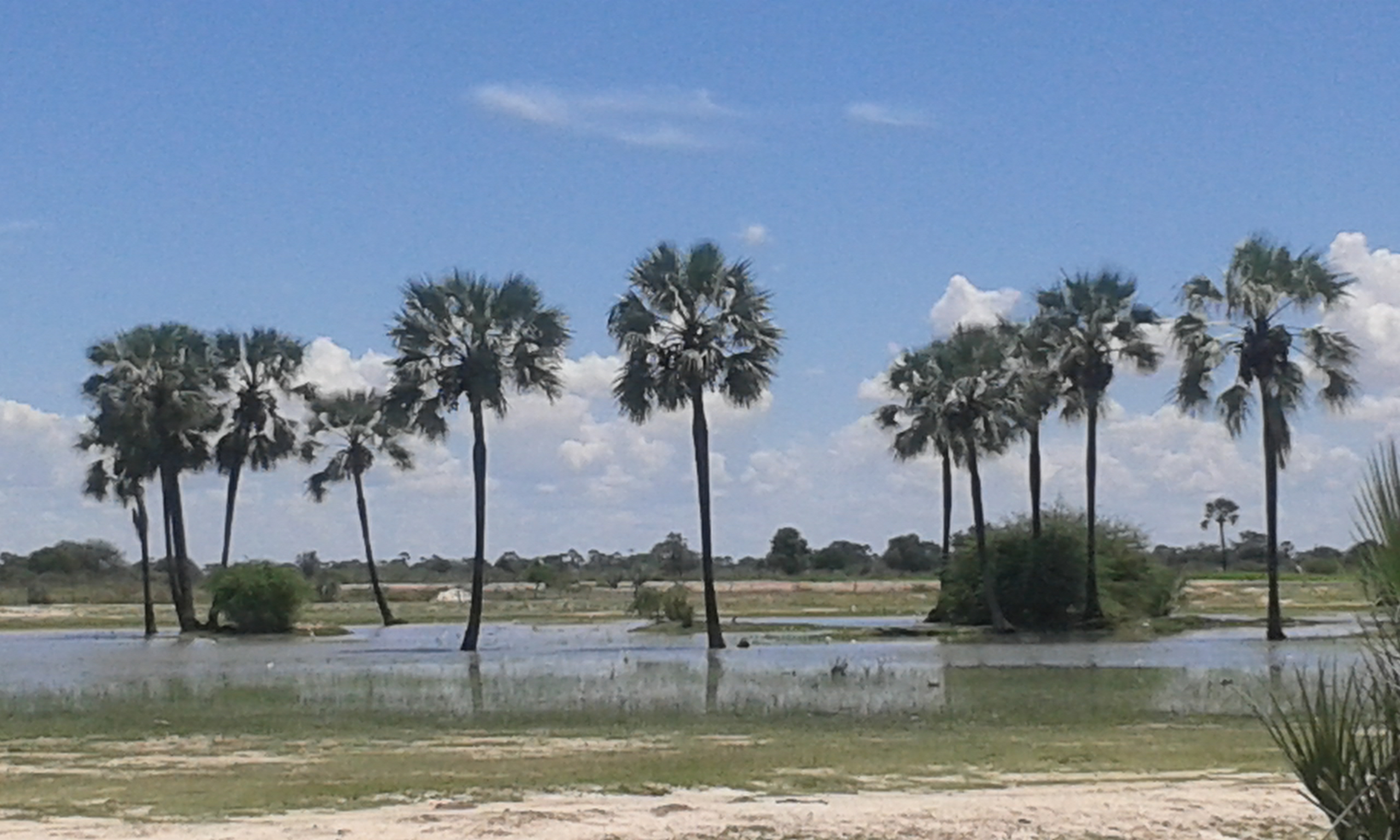
I love this place,
the peace, the calm, the pace
I love the open spaces, friendly faces,
cattle, trees and space
I recently finished conducting fieldwork (17-24 February) in the Omusati region of Northern Namibia on mobility as a livelihood option – providing some valuable findings especially to contribute to a comparative study across four ASSAR countries. In addition to Namibia, these are India, Kenya and Ghana. Coming from a different discipline, this is the first time that I have conducted interviews and this important work wouldn’t have happened without the small opportunities grant that brought together four researchers to work together on a methodology for conducting this research using a life course interview approach. The rest of the team enabled this research to happen by providing clear guidance on the approach to be taken and a step by step guide on how to conduct the work. Thank you Chandni, Mark and Adelina!
The fact that the work was made so accessible and interesting through working with such great colleagues motivated me to go and conduct research that I ordinarily wouldn’t have conducted in light of all my other work commitments and lack of previous experience with this type of work.
As with all fieldwork, there were many hiccups and curveballs but it was a very valuable experience and very interesting. Although I didn’t feel I could always ask everything that I wanted to, asking people questions and digging deeper into things that were mentioned came very naturally to my inquisitive scientific mind. It was an added bonus that I really enjoyed the place.
Chance encounters
Arranging interviews was particularly challenging and I had to be very opportunistic and make a plan a few times when things didn’t work out. My translator bailed on me just before we started the interviews, people that I had arranged to interview cancelled last minute, people that I’d been told would do an interview with me didn’t want to when it came to the time, and some people were very guarded when talking to me. This all meant I had to arrange interviews whenever an opportunity arose.
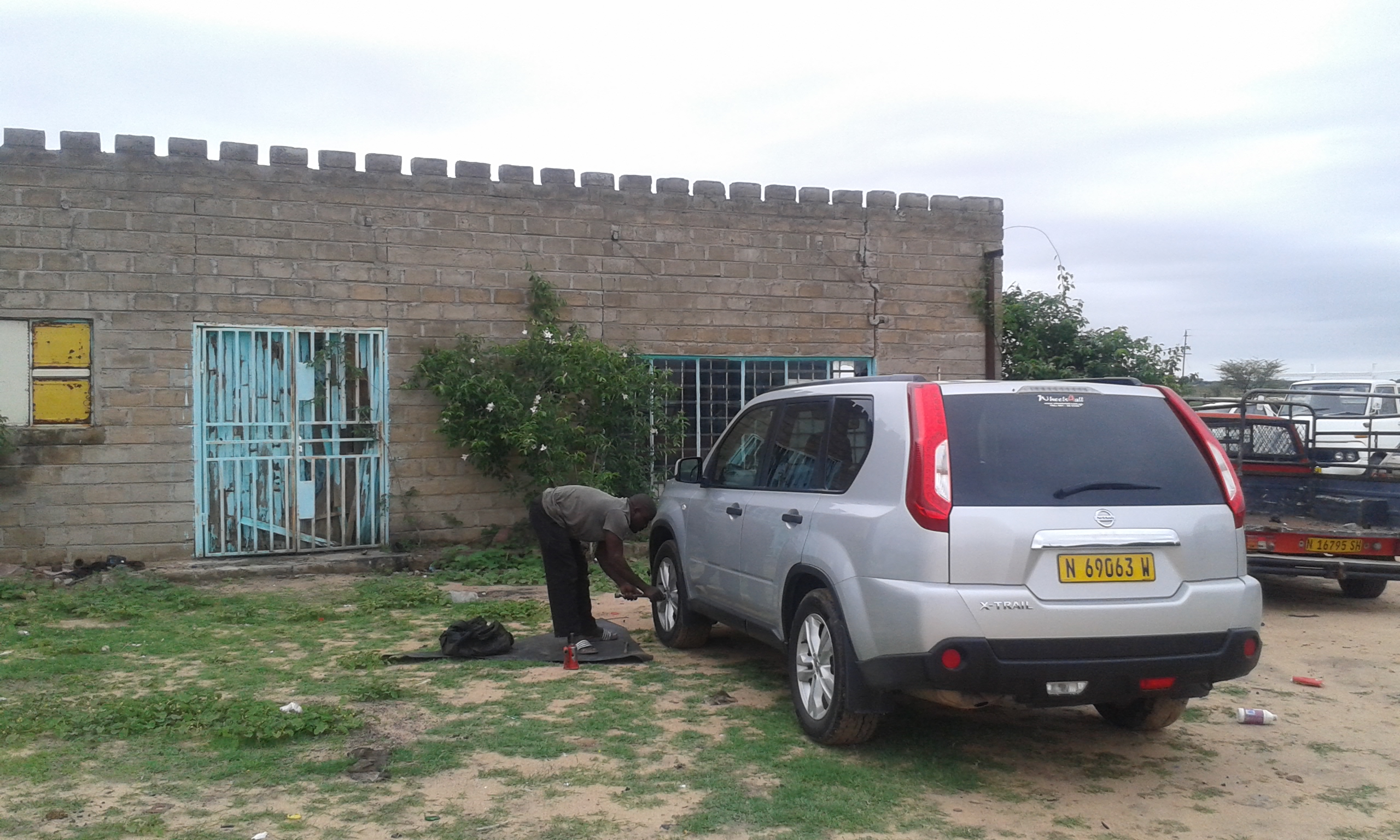
Getting the car fixed
At the beginning of the trip I had a problem with the hire car after I hit an unmarked speed bump too hard and ended up stopping in Epalela to get it fixed by someone one of our stakeholders knew. While we were there, I got introduced to a lady that has a sewing business. She was quite friendly, so I asked to interview her. I then asked her if I could go to her village to interview a family member and she offered to go with us. I would have never found it on my own. It is a matter of unmarked diverging dirt tracks through a vast landscape. Later on in the trip, I ended up interviewing the waiter at the lodge where we stayed after one of my arranged interviews cancelled last minute. This turned out to be one of the most interesting interviews as this young guy is Herero and, although he went to school, many of his siblings didn’t go to school at all and none of his many nephews and nieces are currently going to school. At 23, he is the main breadwinner in his family, supporting about 25 people, as everyone else is at home looking after the livestock. This culture of not valuing education at all is different to that of the Ovambo.
We gave a few people lifts while we were travelling the 50 km between our accommodation and the study area, and another chance encounter was with a Zimbabwean guy that we picked up. He had an interesting story to tell about how he makes a living by buying clothes outside the country and then selling them on credit to customers all over Omusati region. He carries his clothes and shoes on his back and sets up shop outside schools, hospitals and clinics and goes back to collect what he is owed or gets paid by e-wallet or into his bank account each month.

Lunch at the open market
Being in northern Namibia, conducting research has meant experiencing many of the things that I hear or read about. Firstly, driving to Onesi from Ongwediva after the TSP (Transformative Scenario Planning) workshop, we saw barbel and frogs for sale on the road. We’d heard at the VRA (Vulnerability and Risk Assessment) workshop that one of the bonuses about when it rains is that people can catch fish in Oshanas. Secondly, I’ve heard about pensions being handed out and it being a big event. When we went to Onesi, it was pension hand-out day and there was an open market and some of the pensioners in their best outfits. We had a great lunch there. The open markets follow the pension days around to different locations. Next, on Tuesday, there was harvest day at the Epalela fish farm and we went to see people queueing to buy fish. Then, on Wednesday, we saw drought relief food being picked up on the side of the road and, on Thursday, the drought relief food being transported in donkey carts. The pensions, drought relief and fish farm are all government initiatives to help sustain the people in the north and the presence of this type of support from government is something that is well-contrasted in Angola where there is no government support of this nature, which has recently lead to droves of Angolan people coming into Namibia to try and find food and temporary work at certain times of year.
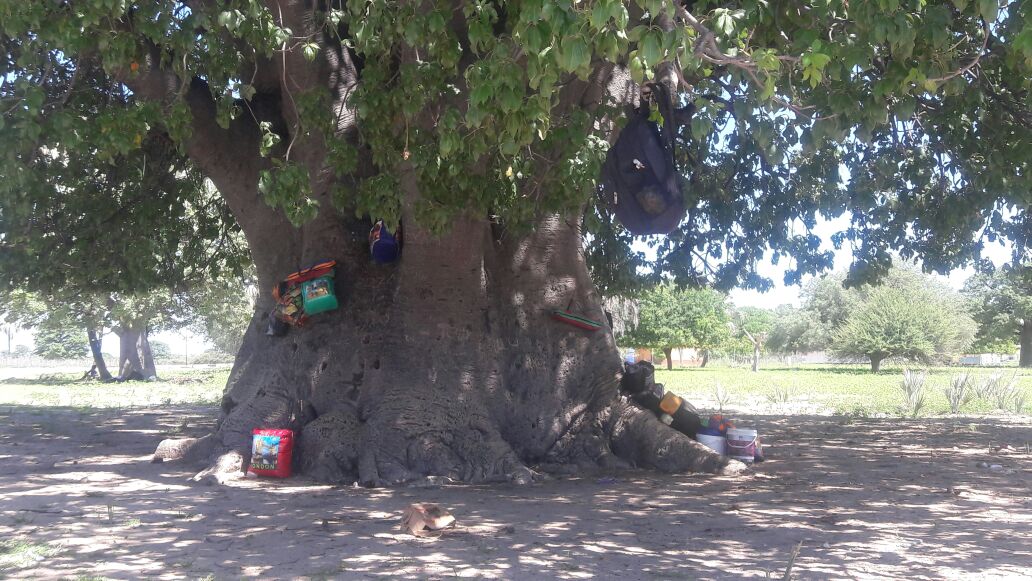
Angolan camp - This is one spot in Onesi where the Angolans leave all their bags when they go work in the fields
The Angolans look for short-term jobs in fields or longer term work in people’s households to make a little money or food to take home to their families across the border. Not only do they come for food and work but they also come to use Namibian hospitals as they provide better services than those nearby their homes. Apparently they also depend on the government projects such as Etunda in Namibia as they buy food and take it back. They also come and pick up left over food in the fields e.g. after machine harvests of maize. The movement of Angolans has increased substantially in the last two or three years. They sleep out while they are in Namibia looking for work. The Angolans and their tents are easy to spot. The Angolan women wear their hair in a distinct way and wear distinctive colourful necklaces, earrings and decorations in their hair. One Angolan lady that I spoke to, with the help of a translator, looked to be in her early twenties but didn’t know her age or the ages of her five children. She had travelled to Namibia for about five days to find work and take some food home to her family.
Mobility driven by drought
The situation of the Angolans (who my research assistant referred to as ‘Angolians’) stood out most from the trip and was perhaps the only case of mobility driven by drought. The Angolans came to Namibia because they did not have enough food from their crops and livestock back home. Although they also don’t have job opportunities and support from government, they’d rather be home in their villages and their movement is a result of drought conditions. Whereas other people that I spoke to moved originally for other reasons such as lack of job opportunities in their village. So while Namibians move away from their villages to urban centres, Angolans are arriving and desperately looking for work and are prepared to work in the fields for less than a Namibian would. As with most of our work, the root causes of vulnerability continue to shape people’s lives.
A few things to remember for next time: 1. Don’t bank on things going according to plan – budget for extra time, 2. Watch out for nasty little speed-humps in some small centres along the road, 3. Bear in mind that if you order a vegetarian meal you may get fish, and 4. You can get a tasty meal at a pension day open market.
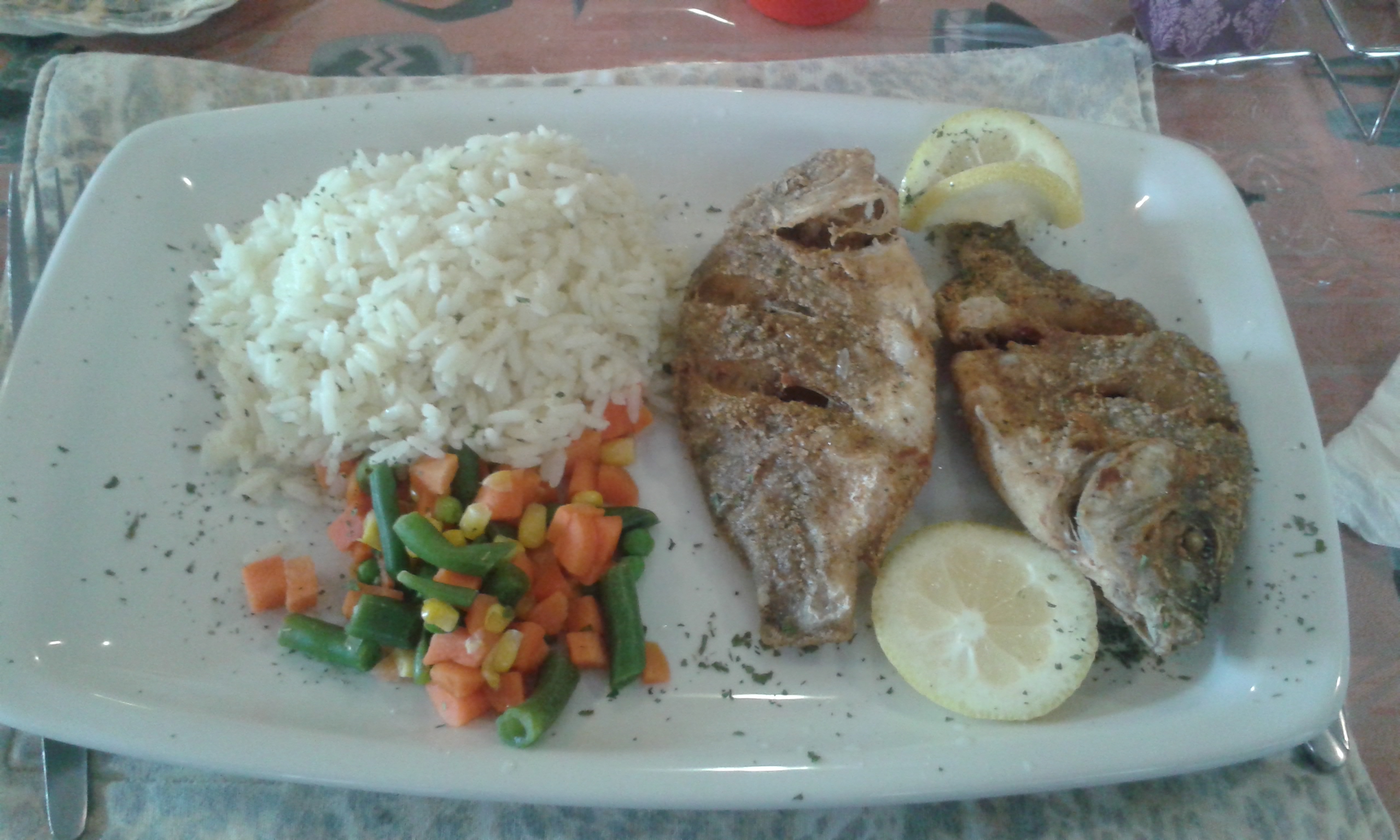
Vegetarian meal – Namibia style